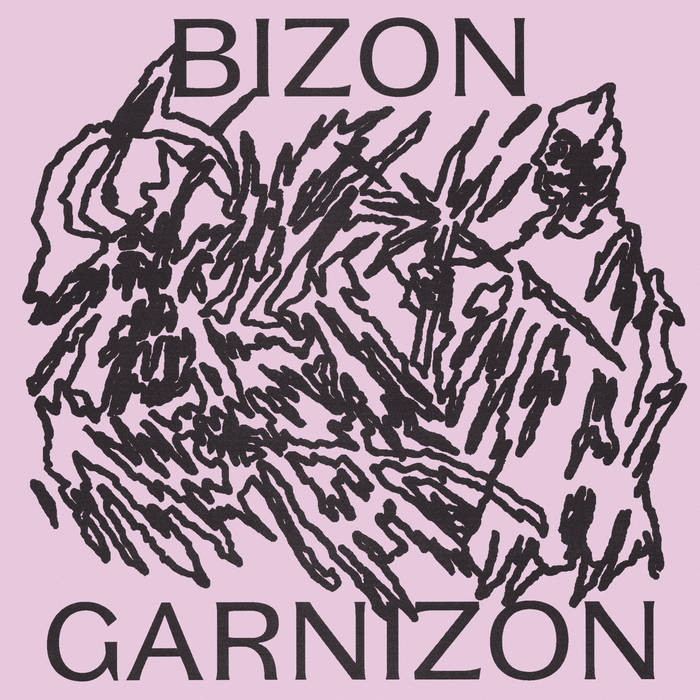Zagreb-based trio Nemeček return with Prokletije II, the second chapter of their ambitious trilogy named after the ominous, rugged Accursed Mountains straddling Montenegro, Kosovo, and Albania. Released in 2024, Prokletije II didn’t just solidify Nemeček’s emerging status — it elevated them to a new creative plane.
The band gained widespread attention after a standout set at Bear Stone Festival in 2024, and capped the year with a well-deserved win of the Milan Mladenović Award, an accolade that celebrates artistic courage and expression across the former Yugoslavia. It couldn’t be more fitting. Prokletije II is precisely that — a fearless, unfiltered vision that fuses regional heritage with musical experimentation.
The cover art for the record is also deeply symbolic — it features Crna Zastava (“Black Flag”), a 1916 painting by Croatian artist and historian, Ljubo Babić. Painted during World War I, it depicts a torn black flag raised above a group of small people — perhaps affected by a gushing wave or wind to the west — it’s symbolic of the ripple of instability and anxiety post-Emperor Franz Josef’s death. The image intensifies the record’s themes of grief, collapse, and historical burden, offering a perfect visual entry into the emotional weight of Prokletije II.
From the very first moments of Os Svijeta (”Axis of the World”), you’re pulled into Nemeček’s world of sonic tension. The track surges forward with uptight drumming from Borna Maksan and a hypnotic Slavonian tambura line, creating a Balkan infused psychedelic sound that feels both ancient and futuristic. It’s heavy, it’s surreal, and it’s utterly captivating.
The track bleeds effortlessly into the first of four ambient interludes — the Prokletije vignettes — which form a thematic backbone to the record. These short pieces aren’t mere filler; they reshape the space around the core songs, adding depth, delicacy, and a cinematic sense of scale.
There’s a unique blend of folklore and doom throughout this album, most notably on Na Kraju Svega (Beograd) (”At the End of It All (Belgrade)”), where thick guitars and airy synths swirl into a doom-like atmosphere, haunted by deep, oppressive vocals from Vedran Živković. It’s followed by Olovni (”From Lead” or “Leaden”; as in the material), a sprawling 9-minute centrepiece that begins with market chatter and ends in a chaotic finale — tambura, guitar, and drums all erupting at once. The buildup is slow and meticulous, moving from a kind of folk reverie into post-rock noise. It’s a sonic journey, perhaps through regional trauma and beauty alike.
Mirila is a personal favourite — acting as my introduction to the band — it’s possibly the most emotionally affecting track here. Drawing from an old Croatian funeral tradition, it’s an ode to loss, memory, and the weight of the soul. With its warm production, melancholic vocals, and shimmering synth work from Leo Beslać, it’s tender and mournful. There’s a reverence in the song that’s hard to replicate.
Things get heavier as we move into the uncompromising Kuvet, a brutal, fascinating, and noise-drenched track that sounds like Michael Gira’s Swans cast through a Balkan filter. It’s abrasive, apocalyptic, and completely mesmerising — especially when paired with the damning lyrics: “When the days of judgment come / Neither in heaven nor on earth / Have mercy on us…”.
Even in its darkest moments, the record never feels directionless. The final ambient pieces — Prokletije 2.3 and 2.4 — guide us through storms and silences alike, industrial marching fading into eerie bells chiming and ghastly winds. The project concludes with Mirëdita, a mysterious and gentle folk-infused closer. The title (likely Albanian for “Good Day” or referencing the Mirdita region/tribe) adds another layer of regional allusion. Musically, it’s the calm after the storm — a warm hum pulling us back to earth.
Taken as a whole, Prokletije II is far more than a collection of tracks. It’s a textured, layered and deeply conceptual piece of work that asks for — and rewards — your full attention. Whether you’re a lover of ambient or drone, experimental folk or brooding post-rock, there’s something here to sink your teeth into.
Steeped in folklore and ancient Balkan tradition, Nemeček have managed to fuse cultural heritage with musical innovation — and they’re only two-thirds of the way through this trilogy! It might not be the most accessible record for someone from outside the region, but Nemeček provide us with a fascinating world to delve deep into; starting with the Accursed Mountains themselves. I’ll be grabbing this on vinyl when I can — and if you’re into the experimental and the elemental, you should too. Here’s their Bandcamp.
Where to Find Them
- Instagram: @nemecek_band
- Bandcamp: listen & support on Bandcamp


